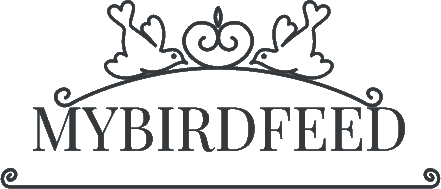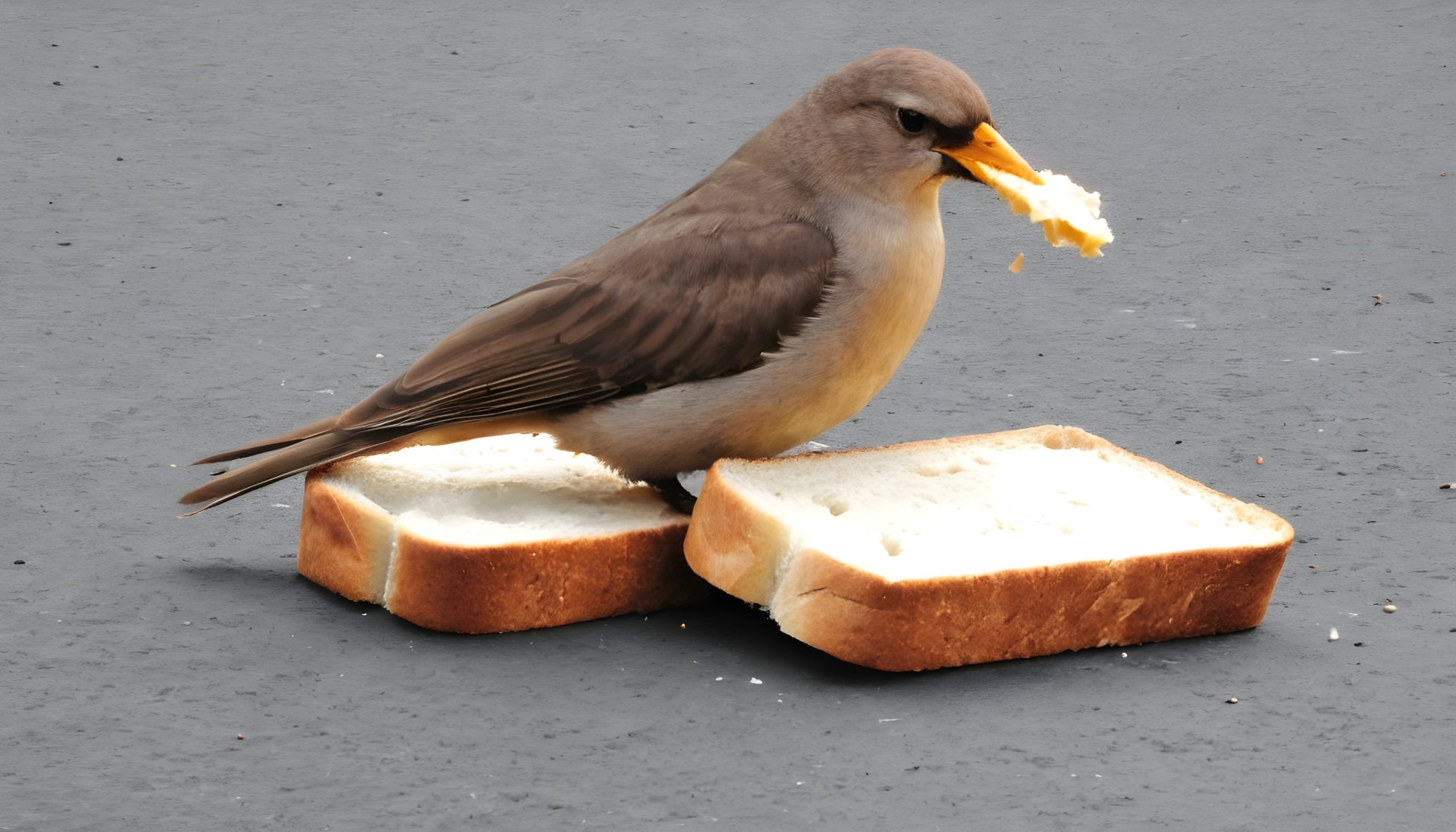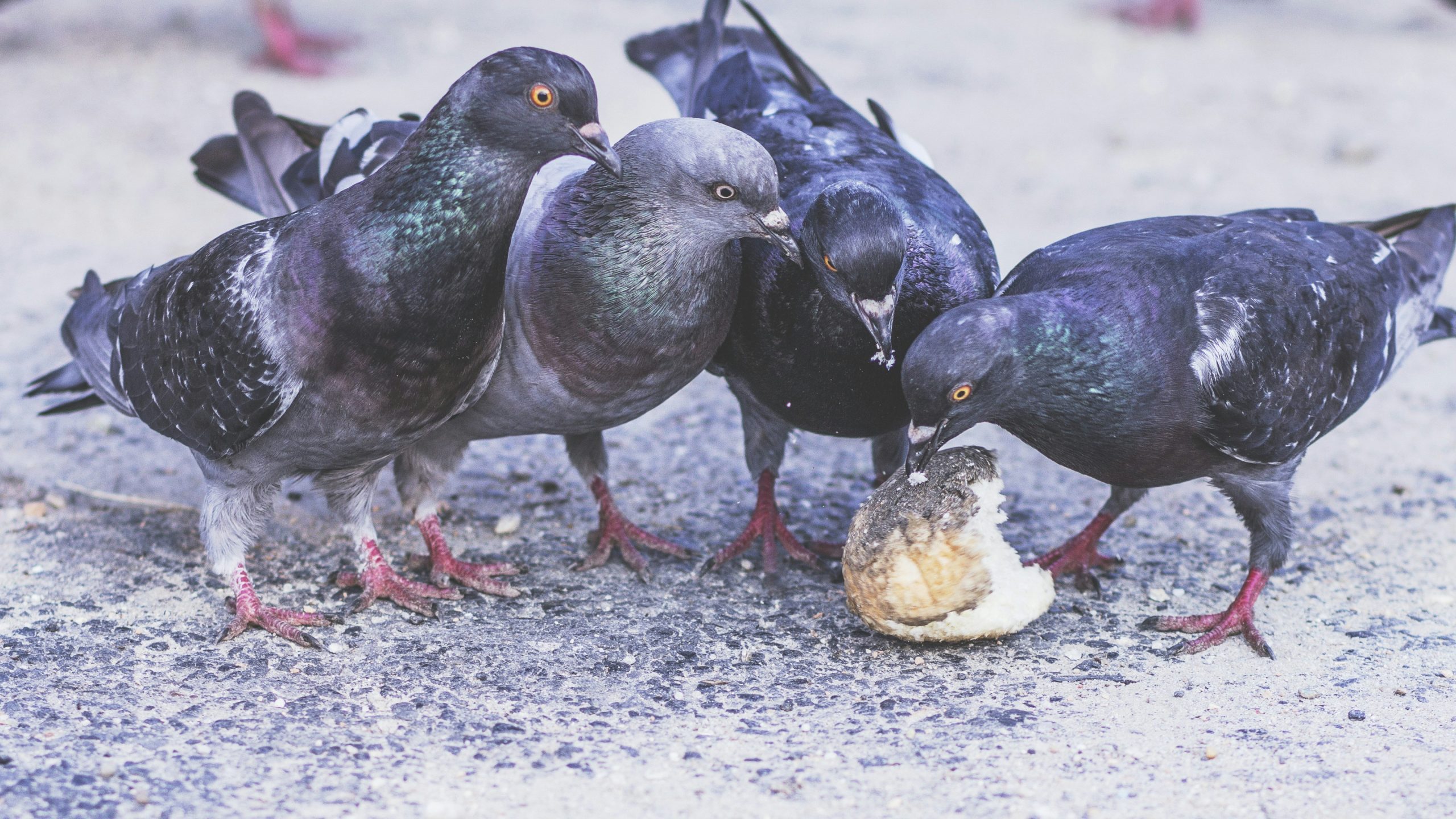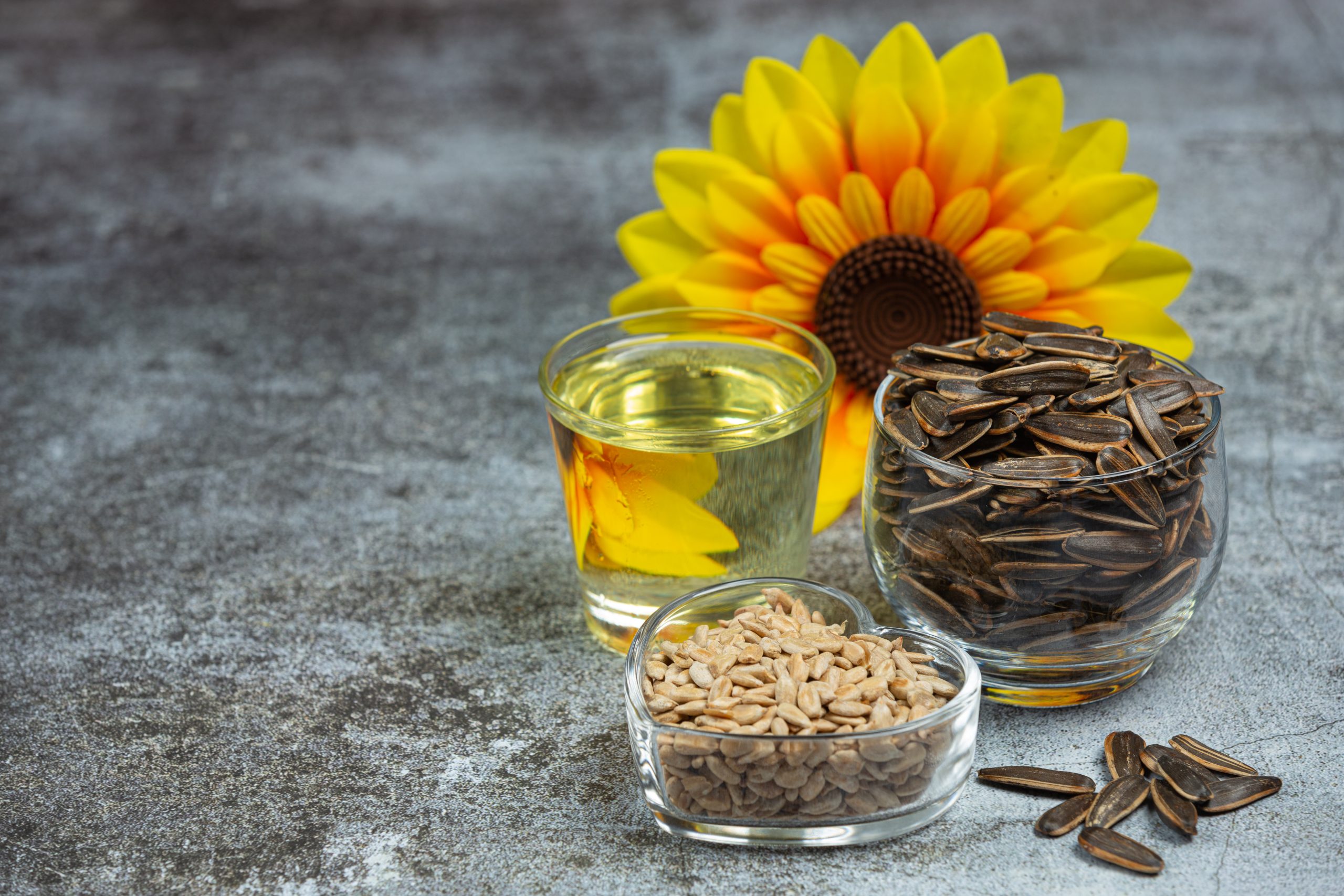can birds eat bread yes, Birds can eat bits of bread sometimes but need diverse, nutrient-rich foods like seeds, fruits, and insects to thrive. Bread has long been a common offering for backyard birds and waterfowl. The sight of ducks and swans jostling for crusty chunks tossed by children is a familiar park scene. But in recent years, there’s been an increasing concern that our good intentions may harm our feathered friends.
Why is bread bad for birds?
The bread itself is not toxic or directly dangerous to birds. However, there are a few critical downsides to offering bread that can negatively impact bird health and populations over time:
Bread Doesn’t Supply Birds With Enough Nutrients
Avians and waterfowl require a varied diet rich in protein, healthy fats, vitamins, minerals, and carbohydrates to thrive. Bread products are often high in carbohydrates but low in other essential nutrients. Birds filled up on bread may fail to seek out more diverse, more nutritious foods to meet their dietary needs.
Too Much Bread Can Cause Angel Wing in Birds
Angel wing occurs when waterfowl or other birds develop abnormally curled feathers that render them unable to fly properly. One cause is thought to be lack of protein and angel wing has been documented more frequently in areas with heavy bread feeding. When birds rely too much on bread, they don’t consume enough natural protein sources, risking this disorder.
Why do birds like bread so much?
The simple answer is that birds enjoy the taste of bread, and modern commercial bread products contain sugar, salt, and yeast that make the bread even more enticing to avian taste buds.
Bread is also easier for birds to eat and digest than whole grains, seeds, and other natural bird foods. When birds struggle to find enough food to sustain their high metabolism and energy needs, bread can be a readily available – though nutritionally deficient – alternative.
For omnivorous birds, the soft texture of bread is an easy meal compared to hunting insects, berries, buds, and digging up seeds. And for birds that naturally thrive on aquatic vegetation and invertebrates like ducks, stale bread floating on the water is far easier to gobble up than foraging through pond muck!
What to feed birds instead of bread?
Rather than filling up on empty bread calories, birds thrive best on a varied diet rich in nutrients. Some healthy, natural food alternatives include:
Seeds & Grains: Black oil sunflower seeds, nyjer thistle, safflower, cracked corn, millet, oats, barley, and other seeds provide essential proteins, carbohydrates, and fats.
Fruits: Chopped grapes, berries, oranges, apples, melons, cherries, and other fruits offer natural sugars and vitamin C to maintain immune function.
Nuts: Chopped walnuts, almonds, pecans, peanut hearts, and other nuts offer protein and healthy oils.
Mealworms & Crickets: Live insects or dried mealworms provide protein and fat to support egg production, growth, and energy needs.
Suet Products: Suet, insect suet, or seed cakes offer concentrated calories from animal fat and protein sources.
Nectar: Sugar water nectar products help sustain hummingbirds, orioles, and other nectar feeders.
With so many nutritious, bird-appropriate feeding options readily available, bread should be at most an occasional treat rather than a dietary staple in your bird-feeding routine.
Does bread kill birds?
Feeding birds small amounts of bread will not directly kill individuals or populations. However, heavily relying on bread rather than more nutritious foods can over time weaken birds, create malnutrition, spread diseases, and potentially shorten lifespans indirectly.
Water-logged bread can also promote dangerous mold and bacterial growth in ponds that can indirectly impact bird and water quality. So while bread itself won’t directly kill birds, the downstream effects of too much bread feeding create unhealthy conditions that threaten avian lives over time.
Is it dangerous to feed ducks bread?
Waterfowl like ducks and geese should not rely heavily on bread as a dietary staple, as the nutritional deficits and angel wing risks are heightened for birds that naturally thrive on aquatic plants and protein sources. Mallard ducklings imprinting too young on humans and bread products may fail to properly migrate or forage on their own later in life as well.
However, most experts agree that supplemental bread feeding is safe for ducks in moderation. For example, a small amount of bread just once a week is fine – it’s the daily dumping of loaves of bread that causes population problems for ducks, geese, and swans over time.
Can birds eat stale bread?
Stale bread or breadcrumbs can be safely consumed by birds but lack the nutrition, proteins, and oils essential for avian health. Hardened bread also poses more of a choking risk for some birds. So while birds can tolerate stale bread, fresh natural foods are superior for meeting dietary needs.
Can birds have a little bit of bread?
Sharing tiny bits of bread here and there with backyard birds poses little risk and can be a special bonding treat. Issues arise when birds fill up on bread instead of nutritious foods, or large amounts are fed that can accumulate over time.
For example, a single slice torn into small pieces and shared with 50 birds just once a week has little impact. But offering multiple loaves continuously becomes problematic. So be sure to limit bread to occasional single-serving treats, not ever-present buffets.
can birds eat bread crumbs?
Dried breadcrumbs pose a low risk to birds and can be included along with other foods, but lack vital nutrition compared to seeds, produce, and proteins. Avoid allowing crumbs to get soggy, moldy, or fermented.
can birds eat bread safely
When included as occasional snacks rather than dietary staples, birds can safely eat small amounts of bread. Ensure bread makes up no more than 10% of overall avian intake to minimize health risks. Avoid bleached, salted, and refined breads.
why can birds eat bread
Birds can physically tolerate and digest bread, which provides carbohydrates for energy. However, bread lacks the proteins, vitamins, and other nutrients birds need to thrive long-term. Understanding birds can eat bread, but shouldn’t rely on it, is key.
can birds eat bread with mold on it
It’s best not to offer birds moldy bread, as the mold carries the risk of respiratory infections. In small amounts, mold is unlikely to sicken most birds – but why chance it? If the bread looks sketchy to you, throw it out and select healthier treat options.
The Problems With Bread
While most backyard birder offerings come from benevolent intentions to care for their feathered friends, good nutrition is as important to avian health as quality shelter, clean water, and safety from predators. Understanding the downsides of excessive bread feeding enables better decisions for the birds we love.
Bread Doesn’t Supply Birds With Enough Nutrients
The natural diets of swans, ducks, gulls, doves, sparrows, finches, and other wildlife are richly diverse. Analyses show herbs, seeds, aquatic plants, grasses, fruits, leafy greens, buds, stalks, and natural grains contain high levels of:
Proteins build muscle, tissues, feathers, and healthy blood cells. Mallard duck protein requirements range from 14-16% of diet.
Fats & Oils to fuel metabolism and absorption of fat-soluble vitamins. Migratory birds require very high-fat stores.
Vitamins & Minerals like vitamin E, calcium, and phosphorus to support bone health, electrolyte balance, enzyme function and fortify immunity.
Carotenoids strengthen reproduction and boost coloration.
Compared to such whole foods, bread is devoid of the diversity and nutrition avians require for resilience. Even seemingly healthy bread processed for human nutrition cannot replace wild bird food sources.
Too Much Bread Can Cause Angel Wing in Birds
Waterfowl that spend most time swimming and are able to fly significant distances are most prone to angel wings, which causes flight feathers to twist out laterally rather than lie flat against the body. The ungainly posture makes it impossible to fly properly.
Bird experts theorize that malnutrition from too much bread and insufficient protein during juvenile growth spurts may prevent proper feather development. Ducks and swans with poor nutrition cannot achieve a healthy weight for migration and become disoriented nomads. Supporting diverse diets promotes fully functioning wings.
Can I Still Feed Birds in My Backyard?
Absolutely! Migratory birds that summer in your yards rely more heavily on supplemental feed when native seeds and fruits are scarce. Feeding backyard birds is hugely beneficial when done properly to foster healthy, resilient flocks thriving along their seasonal journeys.
Follow best practices in bird feeding:
Offer Nutritious, Diverse Foods: Provide quality seeds, produce, sprouted grains, and proteins tailored to species
How To Keep Your Feeders Safe and Clean
Birds rely on backyard oases for vital nutrition outside of migration seasons. Support their health by providing clean water and feeding stations.
Site Feeders Out of Reach: situate feeders away from prowling cats and other predators in sites with quick escape cover
Clean Feeders Regularly: scrub clean dishes often to prevent dangerous mold and bacteria accumulations
Use Quality Seed: ensure abundant, fresh foods that haven’t spoiled; store properly
Prevent Wet Seed: install weather guards to keep seed dry and use weather-resistant feeding stations
Avoid Mixing Species: prevent interspecies aggression and contamination
Remove Stale Seed: rake up soggy debris around feeders to prevent diseases
Follow these standards as religiously as choosing the highest quality bird foods. Frequent scrubbing and site maintenance make your backyard sanctuary as nurturing for bird health as their nutritional provisions.
Conclusion
While most people mean well by sharing their sandwiches or cereal with birds, human food can never completely replace evolutionarily adapted avian diets. Support backyard flocks with quality seeds selected for nutritional density, sprouted legumes, ample fresh produce, proteins from mealworms, and suet, and clean, well-maintained feeding stations instead. An occasional piece of bread or a few crackers shared mindfully fosters enjoyment and connection with nature without supporting dependence on empty calories. Develop backyard habitats through thoughtful landscaping focused on native plants with berries birds naturally seek. By working with instead of against instinctual foraging behaviors aligned with seasonal nourishment patterns, you support resilient wild visitors thriving on their annual migratory journeys.
FAQs
What Do Birds Eat?
Birds exhibit a remarkable diversity in their dietary choices, reflecting their unique adaptations to various ecological niches. Their diets encompass a broad spectrum of food sources, ranging from seeds and fruits to insects, small vertebrates, and even carrion.
What bread is safe for birds?
Any plain bread variety including wheat, multigrain, rye, or sourdough poses low toxicity risks for birds if fed responsibly. Avoid bleached breads with added salts and sugars. The best practice is to minimize bread, not find “safer” options to feed liberally.
What can I feed a bird?
Natural bird foods like seeds, nuts, fruits, vegetables, sprouted grains, greens, and live mealworms; also quality seed mixes for doves/pigeons, songbirds, hummingbirds, etc. Prescription avian diets are available for special needs.
Is it OK to feed pigeons bread?
Feeding pigeons bread should only be very occasional; their digestive systems need grains and seeds. Stick to bird-specific seed mixes high in corn, milo, barley, wheat, and rice supplemented with fresh produce. They forage naturally and need that diversity.
Can parrots eat bread?
Minimize bread for parrots; occasional treats only, no more than 5% of the diet. Parrots thrive on varied produce, sprouted/soaked seeds, and pellets. Stick to bird-safe fruits, veggies, nuts, and quality parrot seed mixes for the main diet.
What is bird’s favorite food?
Favorite foods depend on the species and individual! Offering diverse seed mixes and produce lets birds select favorites tailored to their needs. Include some items similar to wild native foods. Cater to choices by noticing what gets eaten fastest and replenishing those.
Can birds eat rice?
Cooked grains like brown rice can be a healthy component of bird meals alongside other foods. Ensure rice is plain without salt/oil and mix with ample produce, sprouted seeds, pellets, and chopped egg for balanced nutrition.
What is the best bird feed?
The best bird feeds offer variety and quality nutrition: non-GMO seed mixes for specific species; sprouted beans and grains; produce like berries; suet cakes; live mealworms; nectar mixes for hummingbirds; etc. Let birds pick favorites while ensuring diversity.
What can I feed my bird if I don’t have bird food?
If lacking typical bird foods, improvise nutritious options on hand: cooked rice/quinoa mixes, bits of egg, plain yogurt, canned beans, torn greens, diced fruit/veg, oatmeal, torn bread, cat/dog kibble, nuts, seeds from spice jars – get creative!
Can birds eat chocolate?
No. Chocolate contains toxic theobromine deadly to birds. Never offer chocolate, cookies, sweets, or processed foods.
Can birds eat rice?
Cooked brown rice finely chopped into small pieces can be part of a balanced bird diet along with produce, sprouted seeds, egg food, and pellets to form a complete nutrition profile. Stick to plain rice without seasoning.
Can birds eat popcorn?
Plain popped popcorn without salt/butter can be offered to birds in extreme moderation; a maximum of once per week. Lacks nutrients compared to other options. Stick to seeds, produce, and sprouted grains as healthier choices.
Can birds eat grapes?
Grapes can offer birds hydration, natural sugar, and fiber. Birds can eat grape slices, though some avian fruit should be peeled and chopped for safety and easy digestion. Supplement grapes with proteins and carb sources.
Can Birds Eat Cheese?
Birds cannot properly digest dairy foods like cheese so it’s best not to offer it. Milk products pose health risks and don’t deliver the proteins, vitamins, and fats birds need.
Can birds eat granola?
Dry granola in moderation is okay for birds but lacks key nutrients compared to seeds and produce. The sugars and salts often added are unhealthy long-term. Rely on more wholesome foods.
Can birds eat moldy bread?
It’s unsafe for birds to eat moldy bread as it risks fungal and respiratory infections. While a nibble may not kill, best to avoid moldy bits. Stick to fresh whole food sources birds thrive on instead.
Can birds eat bananas?
Chopped plain banana pieces can be part of a balanced bird diet. Ensure variety, supplement with proteins, sprouted grains, and leafy greens too. Fruits offer quick energy but can’t replace complete nutrition essentials.




